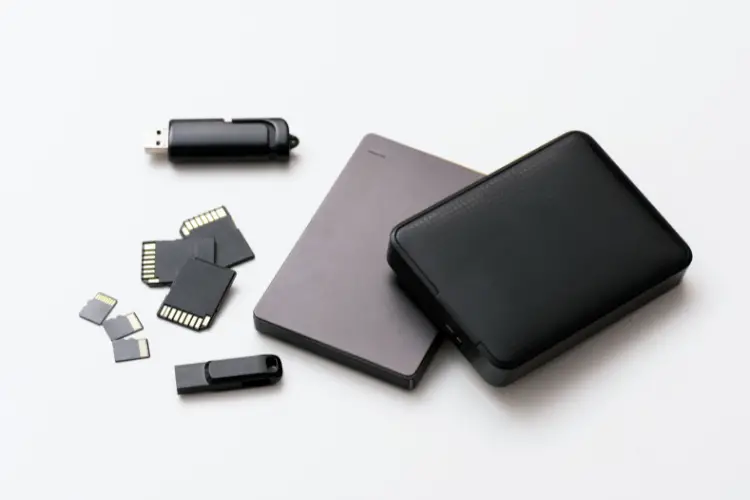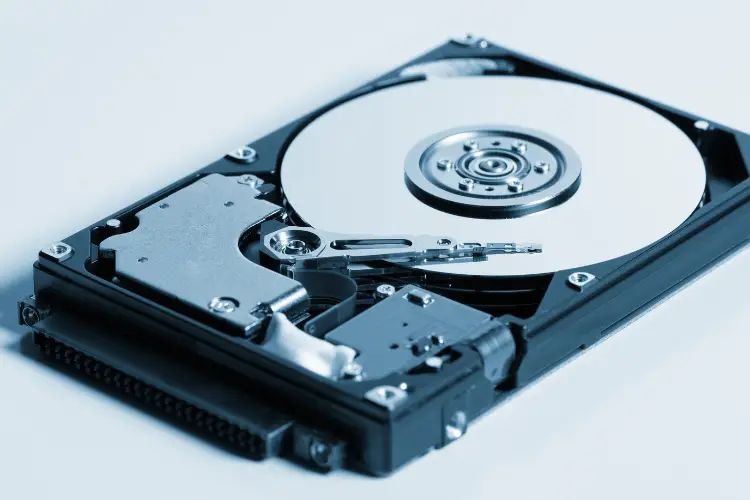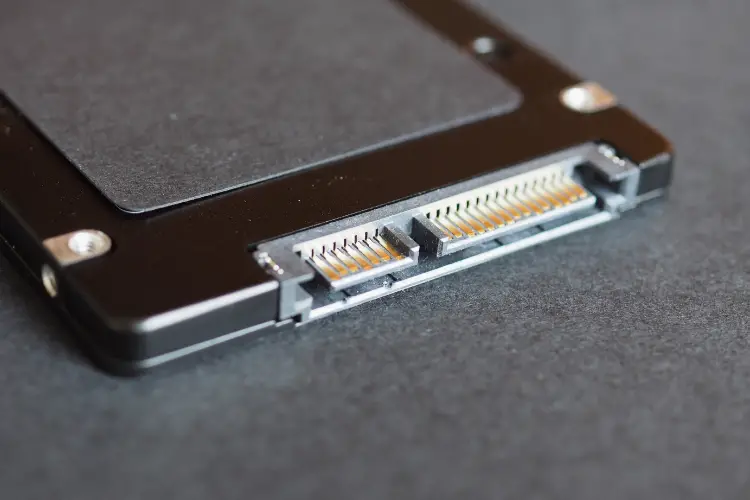
Content
- 1 How Much Storage Do I Need for Gaming?
- 2 What is game storage?
- 3 Why is storage important?
- 4 Types of gaming storage
- 5 What storage device is best for gaming
- 6 How much storage do games use?
- 7 How much storage should a gaming PC have
- 8 Is 2TB a lot of storage for gaming?
- 9 Is 1TB enough for gaming?
- 10 Is 100 GB storage enough for gaming?
- 11 Is 500GB storage enough for gaming?
- 12 Is 4TB overkill for gaming?
How Much Storage Do I Need for Gaming?
It’s a gamer’s lifestyle. Every other day, we get some new video game to play and the dilemma with that is storage space requirement. You may have heard about the storage requirement for most games and how much storage space it takes. However, it’s not something discussed often. You’d be surprised at the amount of storage space you need for gaming on its various platforms.
Video games decide how long someone is willing to wait for something to happen (action, dialogue, a script playing out). With the pace of this kind of entertainment accelerating by the day, it’s understandable that someone would want to go through their computer’s storage space and get rid of some data. The truth is that the average person has a lot more storage space than they need for gaming. There are many different aspects to take into account when looking at this question. The main point is that you shouldn’t worry about having too much storage space for gaming. That will free up your worries and let you enjoy gameplay to its fullest extent.

What is game storage?
Gaming storage is any kind of storage that is specifically designed for gaming. It can be anything from a simple USB stick to a full-blown NAS, and it’s a great way to keep your games safe, secure, and organized.
Gaming storage has been around for years, but it’s only recently started to become more popular. The reason for this is simple: the speed of modern technology. Hard drives can now read data at incredible speeds, which means that if you have a lot of games on your computer, it can take hours for them all to load up. This was never really an issue when the average game took up dozens or hundreds of megabytes of memory but now that games are often over 10GB+, it’s becoming more and more prevalent.
This is where gaming storage comes in handy! With an external hard drive specifically designed with gaming in mind, you’ll be able to load up all your favorite titles in seconds rather than minutes or even hours. And if you’re someone who plays on multiple devices (say, PC and PS4), then having external storage can also save you from having to constantly swap out discs (which takes forever).
Why is storage important?
The first thing you’ll notice when you start playing a game is that it takes up a lot of space on your hard drive. However, this isn’t just because the game itself is large. It’s also because there are many different files that need to be stored on your computer, such as:
The game itself. This includes all the assets used to create the game world, such as textures and models for characters and objects.
The levels in the game. The levels are made up of a series of files that tell the game how to display them at different times during gameplay and how to respond when players interact with them.
Music, sound effects, and voiceovers (or “VO”). These are stored in separate files so they can be played at different times during gameplay. For example, if you hear music while exploring an abandoned house in a horror game, it’s likely because there’s a radio playing in one of the rooms somewhere nearby. The game’s story is stored in a separate file. This can include text and dialogue spoken by characters in the game.
Types of gaming storage
The first step in building a customized gaming rig is to choose the right storage solution. You will want to consider space and speed when choosing your storage system, as well as whether you want an internal or external drive.

Internal Storage
Internal storage is the most common type of storage in computers. Most motherboards have space for one or more hard drives, which can be either internal or external. The main advantage of internal storage is its low cost; it’s easy to add more capacity with just one more drive. Internal drives also offer better performance than external ones because they’re connected directly to the motherboard, which reduces latency and improves overall performance.
External Storage
If you’re looking for high capacity at a low price, there are no beating external storage solutions like USB flash drives and hard disk drives (HDDs). A typical 1TB HDD can store around 8,000 times more data than a typical 128GB USB 3.0 flash drive — and at about half the cost per gigabyte! However, HDDs are slower than SSDs because they rely on a mechanical spinning disk inside them to read and write data.
What storage device is best for gaming
When most people play video games they have one storage device that they always use. This storage device tends to be a hard disk drive, but sometimes it can be an SSD. These two devices each have different advantages and disadvantages that make them the best suited for certain tasks
Hard disk drives
Hard disk drives (HDDs) have been around for decades, and they’re still the most popular storage option for desktop computers and laptops. They’re also often used in servers because they’re so reliable and offer a large amount of storage at a low price point.

HDDs are mechanical devices that use spinning platters coated with magnetic material to store data. The platters are coated with a thin layer of metal that can be magnetized to store binary data as either a one (1) or zero (0). Each platter has two heads that read and write data to the disk surface.
Pros
- Large storage capacity.
- Low cost per megabyte.
Cons
- Slower than SSD
- They have moving parts that are subject to failure due to shock or wear over time
Solid-state drives
Solid-state drives (SSDs) are the storage devices of choice for gamers because they transfer data much faster than hard disk drives (HDDs). The exact difference in performance will vary depending on the type of SSD you buy but expect a significant boost.
In general, an SSD can read and write data at least twice as fast as an HDD. And while not all SSDs are created equal, most perform significantly better than HDDs.

In our tests, we found that an SSD could complete an IOMeter sequential read test in just 0.28 seconds. For comparison’s sake, it took our 2TB WD Black HDD 1 minute and 51 seconds to complete the same test.
Pros
- Extremely fast read/write speed
- More reliable than traditional hard drives
- No moving parts, which means less chance of failure or damage due to shock or dropping
Cons
- They’re more expensive than HDDs
- Data is hard to recover
Which is the best
In most cases, SSDs are a much better investment than traditional hard drives. They’re faster and more reliable, and they won’t slow your whole system down if you have a big game library. If you have the money to spend on an SSD RAID array, though, it can offer even better performance just make sure that anything that’s not saved to your hard drive is backed up somewhere else.
How much storage do games use?
The amount of storage a game uses depends on the type of game and how much space it requires. The following is a guide to how much space you should have available on your device before downloading and installing a game:
500GB: This is a good choice for beginners and casual players who have a smaller library. But as you become more serious about gaming, you’ll need to upgrade to a larger hard drive. If you’re like most players, you’ll be adding new games on a regular basis, which will require you to free up space by deleting old ones.
1TB: This is the sweet spot for most gamers, especially if they have an extensive library of titles. 1TB gives you plenty of room to keep your favorite titles and still have room left over for other media files or apps that take up space on your console.
2TB: The 2TB hard drive is only available in a handful of consoles, which makes it less common than other options in this guide. However, if you’re looking for the most storage possible then this may be the best option for your needs — especially if you’re a big fan of digital downloads or want to keep everything on your console in one place instead of having multiple drives installed in your system.”
Conclusion
The question, “How much storage do I need for gaming?” is relatively vague. It really can illicit a wide range of responses. But if you’re asking what we would recommend, we’d say to get as much storage as you think is reasonable. This is largely a matter of opinion and your personal use. You’ll have to decide if you want to go with a lower capacity drive for faster performance, or if you’re willing to sacrifice some of that performance for storage. If you’re thinking about installing multiple games on your computer, then this will be especially important to consider as well.
FAQ
How much storage should a gaming PC have
The amount of storage you need for your gaming PC depends on how much space you want to devote to games. If you’re thinking about using your gaming PC for other tasks, such as a photo or video editing, then you should consider adding more storage. Here are some general guidelines:
If you plan on playing only a few games at a time and don’t want to store them locally, then 256GB is plenty.
Planning on downloading and installing a lot of games and storing them locally, then 512GB is the minimum amount of storage we recommend.
If you want to play many different games at once, or if you like having lots of extra room for other things, then 1TB or 2TB should be enough.
Is 2TB a lot of storage for gaming?
2TB of storage space is the maximum amount of space you can get on a modern-day hard drive. It’s enough to store hundreds of games and save data, but it’s not enough to store everything you will ever need.
If you’re looking for a new computer or a beginner at playing games then yes, 2TB is more than enough. In fact, most people don’t need more than 1TB of storage space to run their favorite games.
The reason why 2TB isn’t enough for gamers is that modern games are getting bigger and bigger in size. Games like Call of Duty: Modern Warfare 3 and Battlefield 3 have both been reported to be over 17GB in size which means you would need at least two copies of each game just to install them onto your hard drive. Also, if you buy a game that doesn’t come with any DLC content such as Batman: Arkham City then that will take up another few GBs worth of space too!
Is 1TB enough for gaming?
1TB is enough space for games like Red Dead Redemption 2, which comes in at around 100GB. But you’ll want more space for other things, like videos, music, pictures, and so on.
We recommend that gamers go for a 2TB or 3TB drive if they can afford it. These will give you plenty of room to store your games and allow you to download plenty of new ones over the years ahead. If you’re going to be storing other types of media as well, a 4TB drive might be attractive as well.
Is 100 GB storage enough for gaming?
The answer to this question depends on a lot of factors. For example, if you’re playing games that don’t require you to download content from the internet or store it locally, then 100 GB may be more than enough. But in the case of most modern games, where you have to download content from the internet or store it locally, then 100 GB won’t be enough.
If your plan is to play online games like Fortnite and PUBG Mobile, which require you to download and store large amounts of data on your device, then 100 GB won’t be enough. You’ll run out of space very soon.
So if you play online games like Fortnite or PUBG Mobile and want them to work smoothly on your smartphone (or any other device), then you need more than 100 GB storage.
Is 500GB storage enough for gaming?
500GB of storage is more than enough for gaming. If you’re like most gamers, you probably don’t store much on your console. This isn’t just because it’s easier to stream content from the internet and play it on your television. It’s also because game downloads are often 40 to 50GB in size, which means that even a 250GB hard drive is barely big enough to hold just one game.
500GB is more than enough space for the average gamer’s needs. There are exceptions of course — if you’re into downloading every single game on Xbox Live and playing them, then this might not be enough space for you. But if you’re only playing one or two games at a time, then 500GB should be plenty of room for everything else as well.
Is 4TB overkill for gaming?
It depends on what you’re looking to store. If 4TB will do the trick, then that is not an overkill. The best way to determine if 4TB will be enough storage is to look at the games you want to play and how much room they take up on your hard drive.
As an example, let’s say we’re talking about Call of Duty: Black Ops III (COD: BO3). The standard edition of COD: BO3 is about 25GB in size, but if you’re playing on PC, it will take up more space because of mods and other add-ons that can range from 0.5GB to 2GB in size each.
If you have a console like PlayStation 4 or Xbox One, then there may not be much space taken up by mods for COD: BO3 because both consoles have their own marketplace where players can purchase mods directly from developers without having to download them manually from third-party websites or using torrents.
If you’re playing on PC with mods installed, then 4TB would probably not be enough storage space for all of them unless they were compressed into a single folder.







